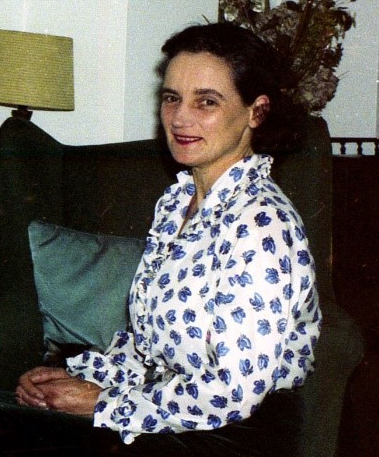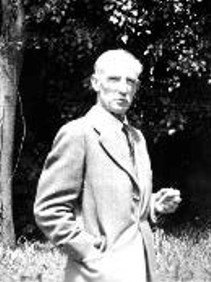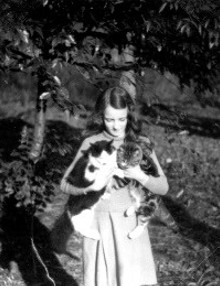By Stephen Norman (2019)
Two of the most distinguished personages buried in the churchyard at All Saints are Prince Alexander Croy (1912–2002) and Princess (Ethel Evelyn) Primrose Croy (1928-2016).
West Farleigh is not known for its nobility so how did this come to pass?

The answer goes back to Victorian times and the brewery of Edward Winch and Sons, a family of brewers from Chatham. Edward Winch was born in 1807 and died in 1885, but the brewing business stayed in the family. In 1899, Edward Winch and Sons merged with A F Style and Co, owners of the magnificent brick-built Medway Brewery which used to stand near Maidstone Bridge. The combined firm had 356 public houses and was a force in Kent and London.
The Winch family, true to Victorian tradition, had many offspring and the seventh son of Edward Winch was Thomas Winch, (1848–1912). Thomas Winch himself had many sons and the third son was Colonel Aubery Brooke Winch, who became a director of the family firm, now known as Booths Style and Winch.
Primrose Winch, Princess Croy
Aubery married Marie Elspeth Agnes Makgill (1895-1939), the daughter of Sir George Makgill and Frances Grant. The Makgill’s were Scots, but Sir George had spent some years in New Zealand where his father had an estate, and his wife Frances was a New Zealander. Sir George was a prominent and colourful right wing political activist and writer (he wrote several stirring adventure novels). During the First World War, he was secretary of the Anti-German League, and after the war set up a private intelligence network, the Industrial Intelligence Network to monitor communists and other “subversives”. In 1926, he ran the day to day operations of the Organisation for the Maintenance of Supplies, whose mission was to provide sustenance to workers breaking the General Strike of 1926.

We don’t know much about Colonel Aubery Winch. He served in the Royal Scots Greys, a dragoon regiment. In 1919, he was awarded the OBE for “distinguished services during the War”. During the 1930s, he and Marie lived in “The Croft” at West Farleigh (Elmscroft or Smiths Croft?). Marie Makgill was an author, like her father.
Aubery and Marie Winch had four children, all girls: Elinor, Mary, Primrose (born 22 March 1928) and her twin Eve, although sadly Eve died before the age of one. Mary Winch was married at All Saints to John Godfrey. The Godfreys emigrated to Tasmania, and created a new dynasty.
Colonel Aubery Winch
Marie Winch nee Makgill took her own life in 1939, when Primrose was 11 years old. Her husband Aubery was allowed to have her buried in the churchyard at All Saints in an unmarked grave. Her daughter Primrose was barely a teenager at the time of her mother’s death, and suffered greatly. Aubrey himself died at sea in 1951 on his way to Hobart, Tasmania to meet his daughter Mary Godrey and family.

Primrose made her own way in life. She was sent to a convent school in
Maidstone, and then to the Lycee Francais in London. Then she joined the Foreign Office. For most of her life, she lived in Eland Road, Clapham, but she was occasionally posted abroad, including to Japan. She was a lifelong friend of another West Farleigh resident, Jean Landale, the daughter of Captain Landale of Ewell Manor, and came down to visit friends in Kent often (Jean Landale married Lord Fynes Cornwallis).
Primrose loved cats
In 1978 and at the mature age of 50, Primrose married Prince Alexander Croy and the couple moved to Friezley House in Cranbrook. The House of Croÿ is an international family of European nobility which held a seat in the Imperial Diet from 1486, and was elevated to the rank of Imperial Princes in 1594. In 1913 the family had branches in Belgium, France and Prussia. This dynastic house, which originally adopted its name from the Château de Croÿ in what is now Belgium, claimed descent from the Hungarian Prince Marc who allegedly settled in France in 1147, where he married an heiress to the barony of Croÿ. The Croÿ family rose to prominence under the Dukes of Burgundy. Later they became actively involved in the complex politics of France, Spain, Austria, and the Low Countries.
Prince Alexander was Austrian, and from a strong Catholic background, while Primrose was an Anglican. Her niece remembers them as a devoted, loving and very happy couple, and despite Alexander having a long illness, the house was ‘often filled with laughter and music’. Knowing Primrose’s desire to be buried at West Farleigh near her mother, Alexander converted to Anglicanism, so that he could be buried next to her.
Primrose Croy left a generous legacy to All Saints Church in her will, which contributed greatly to funding the repairs of 2018.